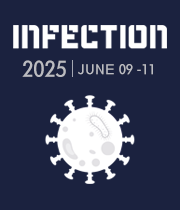Title : Acute-chronic meningoencephalitis: A case series of variegated etiological insights
Abstract:
Meningoencephalitis is a significant global burden of morbidity, mortality, and lasting neurological damage, with various causes including viral, non-viral infections, and autoimmune processes. In the West, autoimmune encephalitis has become more common than any individual infectious cause, while infectious causes still predominate in Asia. Here we are presenting a case series of encephalitis with myriad aetiologies.
The first case of 27-year-old male student who presented with altered sensorium is unique in a sense that our patient was immunocompetent with no history of genital or oropharyngeal herpes and without high risk behaviour turned out to have HSV-2(herpes simplex virus) encephalitis. Moreover he suffered from testicular torsion 1 year back which is not documented as a cause for HSV-2 encephalitis yet. His MRI brain showed diffuse sulcal effacement which improved on later imaging.
Case two describes a 21 year old female with HHV-6 (human herpes virus -6) encephalitis, again an immunocompetent adult, who responded well to ganciclovir. She completed 21 days of ganciclovir and was discharged in stable condition. HHV-6 rarely affects adult immune-competent population.1 She presented as new onset refractory status epilepticus (NORSE).
Another 25-year-old male presented with chronic fever with seizure for 2.5 months. His serum anti-ribosomal P antibodies were strongly positive, with low complement levels (C3), and a diagnosis of neuropsychiatric systemic lupus erythematosus (SLE) was considered. Anti-RibP antibodies have been reported to be more common among paediatric onset SLE than adult-onset SLE. Anti-RibP was associated with NPSLE (neuropsychiatric lupus), LN (lupus nephritis) and LH (lupus hepatitis).2 So our patient was an adult onset case without features of renal dysfunction. Although he posed a challenge for us initially with background history of tubercular lymphadenitis and thus started on anti-tubercular therapy initially, seeing a high burden of tuberculosis in India. But he did not respond and deteriorated further then leading to exhaustive search which revealed the aforementioned diagnosis. Thereafter pulse steroids were started and he subsequently improved. His MRI brain showed bilateral basal ganglia and medial temporal lobe hyperintensities with pachymeningitis and leptomeningitis.
Our last case, a young male with chronic encephalitis with bilateral sixth nerve palsy of one month duration with raised intracranial pressure unfolded to have lead encephalopathy. He subsequently received chelation with EDTA and penicillamine leading to improvement. This patient mimicked tubercular meningoencephalitis and initiated on anti-tubercular treatment initially but deteriorated later. He had been working in an inverter battery factory for the past eight years, and peripheral smear showed microcytic hypochromic anemia, raising suspicion of lead toxicity His serum lead levels came out 136mcg/dl. However, recognition of lead as a health hazard and adoption of several lead poisoning prevention policies in the 90’s like ,elimination of lead from gasoline products have significantly reduced the cases of lead poisoning in the 21st century, with very few cases being reported from “lead hot-spots” like battery recycling plants, mines, refineries etc.
So, this represents an unique conundrums of meningoencephalitis aetiology which if not worked upon diligently will lead to misdiagnosis and hence raised burden of mortality and morbidity.


